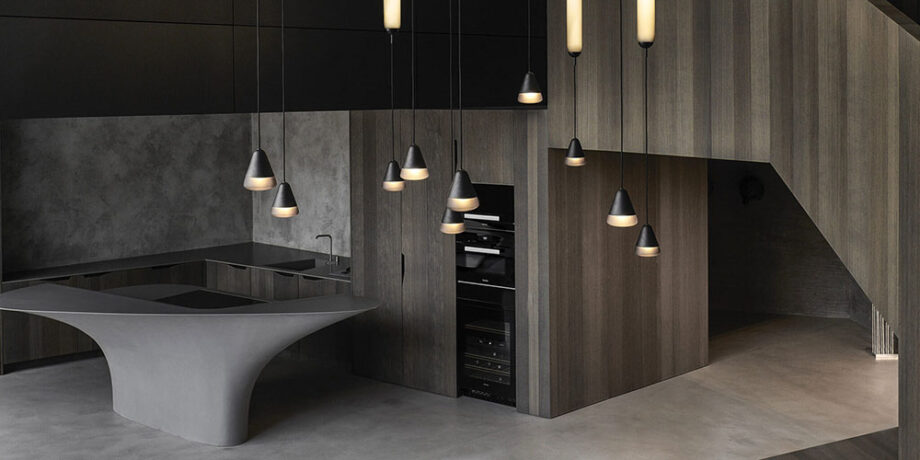The integration of intelligent lighting systems is revolutionising how we illuminate our surroundings in today’s fast-paced world. These cutting-edge systems go beyond simply improving energy efficiency; they offer a multitude of benefits that are perfectly aligned with our modern lifestyles. Let’s delve into the significance of intelligent lighting systems in today’s era.
1. Efficiency and Energy Conservation:

https://www.brokis.cz/projects/private-villa/
Brokis lighting used in Private villa in Prague, Czech Republic
Photo: Martin Chum
Smart lighting systems offer an effective solution for energy conservation in a world grappling with environmental challenges. These innovative lighting systems automatically adjust lighting levels based on occupancy and natural light availability by utilising motion sensors and smart controls. For example, smart street lights can dim during low-traffic hours, significantly reducing energy consumption. Moreover, daylight harvesting optimises natural light usage, decreasing electricity consumption. This energy efficiency helps reduce costs and minimises our carbon footprint, making intelligent lighting systems an eco-friendly choice.
2. Enhanced User Experience:

https://www.folio.it/en/projects/finastra/
Folio Point Cloud used in the project Finastra in Tel Aviv
Smart lighting systems provide a wide range of features that enhance the overall user experience. Smart bulbs, for instance, can be easily controlled through mobile applications, allowing users to adjust brightness and colour and even create customised lighting scenes to match their moods or activities. These innovative lighting systems can also be integrated with voice assistants such as Amazon Alexa or Google Assistant, offering hands-free control. The convenience and customisation capabilities elevate our interaction with lighting systems, making them an integral part of our daily lives.
4. Safety and Security:

https://www.exenia.eu/en/projects/dar-zefta/
Alta Light by Exenianused in Dar Zefta
Photographer: Bahaa Ghoussainy
Architect: Simone Kosremelli
Smart lighting systems play a crucial role in ensuring safety and security. Outdoor lighting solutions equipped with motion sensors can detect intruders or unexpected movement, triggering bright lighting to deter potential threats. Furthermore, emergency lighting systems can automatically activate during power outages, providing guidance and preventing accidents. With these intelligent features, lighting systems contribute to creating safer environments, instilling peace of mind for homeowners and businesses alike.
4. Smart City Integration:

https://www.brokis.cz/projects/villa-twelve-2/
Brokis Lighting used in Villa Twelve, Spain
Interior design: Marga Comas interior design
Photographer: Kamal fotografia
The relevance of intelligent lighting systems extends beyond individual homes and businesses, as they form an essential component of smart city infrastructure. Cities leverage these systems to optimise energy usage, improve traffic management, and enhance public safety. Adaptive smart street lighting, for example, can adjust brightness levels based on real-time traffic conditions, reducing accidents and congestion. Moreover, integrated sensor networks can monitor air quality and noise levels and even detect available parking spaces. Smart lighting contributes to developing sustainable and efficient cities by seamlessly integrating lighting with other urban systems.
As we navigate the complexities of the modern world, intelligent and innovative lighting systems prove to be more than just a source of illumination. Smart lights offer efficiency, enhanced user experiences, safety, and the potential to transform our cities into smart, sustainable environments. Embracing these technologies for lighting design is relevant and a step towards a brighter, more connected future.


